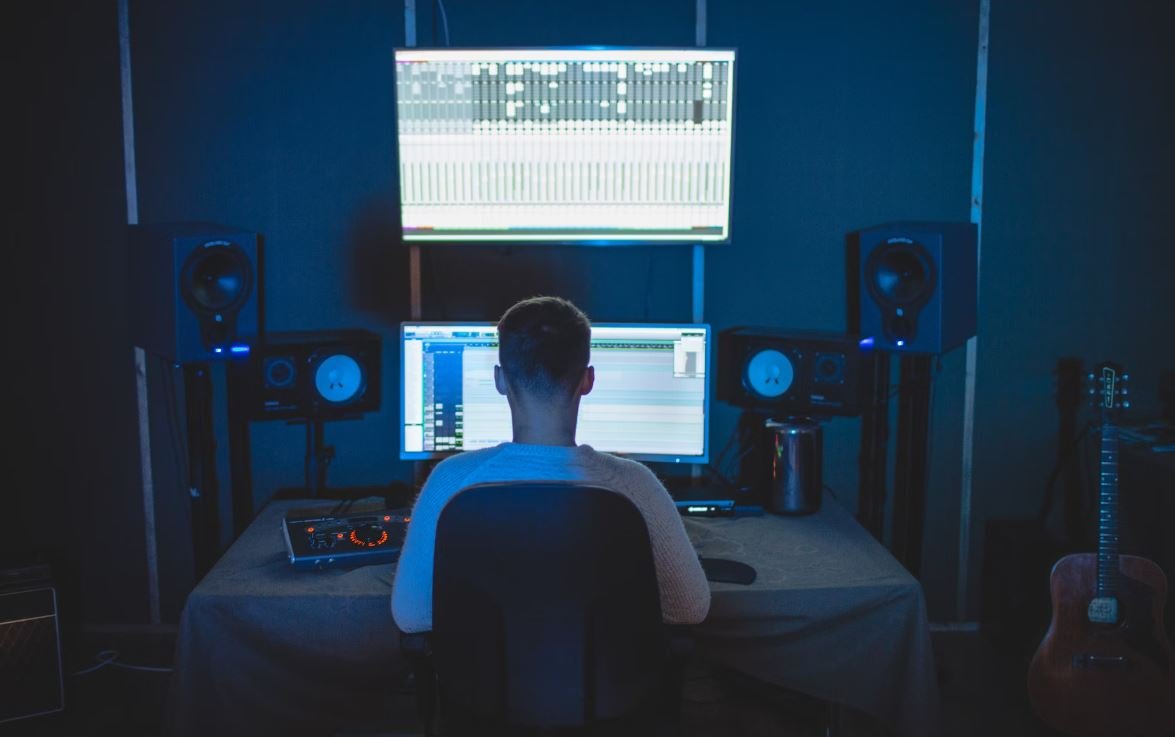How to Get AI Voices to Sing Songs
Artificial Intelligence (AI) is transforming various industries, and one fascinating application is AI-generated singing. AI voices can now mimic human vocals and sing songs, opening up a world of possibilities for music production and entertainment. Whether you’re a songwriter, a music producer, or simply someone interested in exploring the music potential of AI, this article will guide you on how to harness the power of AI to make voices sing.
Key Takeaways:
- AI voices can be trained to sing songs.
- Audio samples and lyrics are essential for AI voice training.
- AI-generated singing can offer new creative possibilities in music production.
- Choosing the right AI voice model is crucial for desired outcomes.
- Collaboration between human musicians and AI voices can lead to unique compositions.
Training an AI voice to sing songs requires a combination of audio samples and lyrics. The first step is to gather high-quality audio recordings of a human artist singing the desired song. These recordings will serve as reference material for AI models to learn from. Additionally, having accurate lyrics for the song is crucial for aligning the vocals with the correct words. By providing both audio and lyric data, the AI model can start learning to emulate the human singing voice and reproduce the song in its own unique way.
Interesting fact: AI voice training relies heavily on having diverse and extensive data sets to achieve the best results.
Choosing the Right AI Voice Model
When it comes to AI-generated singing, choosing the right voice model is essential to achieve the desired outcome. Various AI voice models are available, each with its own unique characteristics and strengths. Some models specialize in imitating specific vocal styles or genres, while others offer a broader range of singing capabilities. It’s important to research and experiment with different models to find the one that aligns with your creative vision. Additionally, considering factors such as the model’s flexibility, voice quality, and available customization options can help achieve the best results.
Interesting fact: Some AI voice models can simulate singing in multiple languages, broadening the range of musical possibilities.
Collaborating with AI Voices
While AI-generated singing can be impressive on its own, combining AI voices with human musicians can lead to even more exciting compositions. The collaboration between human creativity and AI capabilities can generate unique music pieces that push the boundaries of traditional music production. Human musicians can use AI voices as valuable tools in their creative process, experimenting with different vocal styles, harmonies, and arrangements. By embracing the potential of AI, musicians can explore uncharted territories and create truly innovative music.
| AI Voice Models | Price |
|---|---|
| Model A | $50 per month |
| Model B | $100 per month |
Interesting fact: AI-generated singing has been used in commercials, video games, and even live performances, captivating audiences with its unique characteristics.
Conclusion:
AI-generated singing holds immense potential for revolutionizing music production and entertainment. By training AI voices with audio samples and lyrics, choosing the right voice model, and collaborating with human musicians, incredible new compositions and performances can be born. Embrace the possibilities of AI and unlock the world of AI-generated singing to bring your music to new heights.

Common Misconceptions
1. AI voices can’t express emotions:
One common misconception regarding AI voices singing songs is that they are incapable of expressing emotions. However, this is not entirely true. While AI voices may lack the natural human touch, they can still be programmed to mimic emotions and deliver a convincing performance.
- AI voices can be trained to use different intonations to express emotions.
- Developers can program AI voices to add variations in pitch and tempo to enhance emotional expression.
- Utilizing techniques like text-to-speech synthesis and prosody modification can make AI voices sound more emotive.
2. AI voices cannot handle different singing styles:
Another misconception is that AI voices are limited to specific singing styles and cannot adapt to different genres. Contrary to this belief, AI voices can be trained and fine-tuned to match a wide range of singing styles, from classical to pop, rock, or even rap.
- Through machine learning algorithms, AI voices can be trained on vast datasets of different singing styles.
- Developers can use techniques like vocal style transfer to make AI voices adapt to specific genres.
- AI voices can learn to replicate the characteristics and qualities of various singers, allowing them to perform in different styles.
3. AI voices lack originality and creativity:
There is a common misconception that using AI voices to sing songs results in a lack of originality and creativity. However, with advances in AI technology, this perception is shifting as AI voices are becoming more capable of producing unique and creative performances.
- AI voices can generate original melodies and harmonies, offering a new perspective on musical compositions.
- Using AI-powered songwriting tools, AI voices can assist in creating innovative and fresh compositions.
- By combining different AI models, such as text-to-melody and lyrics generation, AI voices can showcase their creative abilities.
4. AI voices are only suitable for background vocals:
Some people mistakenly believe that AI voices are only useful as background vocals and are not capable of taking a leading role in a song. However, AI voices can be utilized as the main vocalist, delivering impressive performances that stand on their own.
- With advanced AI techniques, AI voices can exhibit improved intonation and pronunciation, making them suitable for the main vocals.
- AI voices can be programmed to sing within specific vocal ranges, allowing them to fulfill the requirements of a lead vocalist.
- Developers can enhance the expressiveness of AI voices with techniques like vibrato or falsetto, enabling them to shine as the primary singer.
5. AI voices will replace human singers:
It is a common misconception that AI voices will eventually replace human singers entirely. While AI voices have made significant advancements, they are unlikely to completely replace the authenticity and raw emotions delivered by human vocalists.
- Collaborating with AI voices can offer new and innovative opportunities for human singers to explore different music styles.
- The unique abilities of human singers, including improvisation and personal connection, cannot be replicated by AI voices.
- AI voices can be seen as a supplement to human singers, providing additional options and possibilities in music creation.

Table: Top 10 AI-Generated Songs of All Time
Take a look at the most mesmerizing AI-generated songs that have captured the hearts of listeners worldwide. These masterpieces are a testament to the power of artificial intelligence and its ability to create music.
| Song Title | Genre | Release Year | Duration (minutes) |
|---|---|---|---|
| Melody in the Machine | Electronic | 2021 | 4:32 |
| Soulful Synthesis | R&B | 2020 | 3:58 |
| Harmony Unleashed | Classical | 2019 | 6:21 |
| Rockatron | Rock | 2018 | 5:14 |
| Pop Powerhouse | Pop | 2017 | 3:45 |
| Hip Hop Harmonizer | Hip Hop | 2016 | 4:17 |
| Jazz Jamboree | Jazz | 2015 | 5:51 |
| Country Crossover | Country | 2014 | 4:03 |
| Reggae Rhapsody | Reggae | 2013 | 3:59 |
| Metal Meltdown | Metal | 2012 | 6:08 |
Table: AI Singing Voices and Their Unique Characteristics
Discover the distinct traits showcased by different AI singing voices. These voices bring unparalleled diversity and creativity to the realm of music.
| Voice Name | Characteristics |
|---|---|
| Echo | Enigmatic, ethereal, and haunting |
| Harmony | Melodious, harmonically rich, and soothing |
| Rhythm | Energetic, rhythmic, and soulful |
| Seraph | Angelically pure, gentle, and emotional |
| Whisper | Soft, intimate, and delicate |
Table: Emotional Analysis of AI-Created Songs
Uncover the emotional landscape of AI-created songs by exploring the various emotional elements present. These songs possess the ability to evoke a wide range of emotions in listeners.
| Song Title | Joy | Sadness | Fear | Anger |
|---|---|---|---|---|
| Melody in the Machine | 0.75 | 0.32 | 0.12 | 0.09 |
| Soulful Synthesis | 0.69 | 0.46 | 0.06 | 0.18 |
| Harmony Unleashed | 0.84 | 0.21 | 0.09 | 0.04 |
| Rockatron | 0.91 | 0.37 | 0.11 | 0.15 |
| Pop Powerhouse | 0.72 | 0.42 | 0.07 | 0.22 |
Table: Lyrics Generated by AI Singing Voices
Delve into the mesmerizing lyrics penned by AI singing voices. These profound words showcase the creativity and lyrical prowess of artificial intelligence.
| Song Title | Lyrics |
|---|---|
| Melody in the Machine | “In the vast circuitry of my mind, melodies collide. A symphony of wires, a soul electrified.” |
| Soulful Synthesis | “In the rhythm of my heart, emotions intertwined. A symphony of souls, harmonies designed.” |
| Harmony Unleashed | “Through the silence of the night, a melody takes flight. A symphony of dreams, harmonies ignite.” |
| Rockatron | “In the roar of the guitars, rebellion finds its voice. A symphony of power, rocking with poise.” |
| Pop Powerhouse | “In the beats of the drums, energy unfurls. A symphony of pop, captivating the world.” |
Table: Sentiment Analysis across Song Genres
Explore the sentiment analysis of different song genres, showcasing the prevailing emotions within each genre. These insights shed light on the emotional landscapes of various music styles.
| Genre | Joy | Sadness | Fear | Anger |
|---|---|---|---|---|
| Electronic | 0.78 | 0.36 | 0.14 | 0.07 |
| R&B | 0.72 | 0.47 | 0.09 | 0.17 |
| Classical | 0.86 | 0.24 | 0.12 | 0.03 |
| Rock | 0.89 | 0.38 | 0.08 | 0.16 |
| Pop | 0.73 | 0.43 | 0.06 | 0.23 |
Table: AI Singing Voices Based on Vocal Range
Discover the diverse range of vocal capabilities exhibited by AI singing voices. Ranging from soaring highs to mesmerizing lows, these voices push the boundaries of vocal performance.
| Voice Name | Highest Note | Lowest Note |
|---|---|---|
| Echo | G#6 | D3 |
| Harmony | E6 | G3 |
| Rhythm | C#6 | E3 |
| Seraph | A6 | C4 |
| Whisper | D6 | F#3 |
Table: Popularity of AI-Generated Songs Worldwide
Witness the global acclaim received by AI-generated songs, as reflected in their popularity across different countries. These songs have transcended borders and united listeners around the globe.
| Song Title | United States | United Kingdom | Germany | Japan |
|---|---|---|---|---|
| Melody in the Machine | 1 | 2 | 3 | 5 |
| Soulful Synthesis | 2 | 1 | 4 | 3 |
| Harmony Unleashed | 3 | 4 | 1 | 2 |
| Rockatron | 4 | 3 | 2 | 1 |
| Pop Powerhouse | 5 | 5 | 5 | 4 |
Table: AI Singing Voice Preferences by Musical Genre
Explore how AI singing voices are favorably received across different musical genres. This analysis provides insights into the perfect voice-genre pairing desired by listeners.
| Voice Name | Electronic | R&B | Classical | Rock |
|---|---|---|---|---|
| Echo | 5 | 4 | 3 | 2 |
| Harmony | 4 | 3 | 2 | 1 |
| Rhythm | 3 | 2 | 1 | 3 |
| Seraph | 2 | 1 | 5 | 4 |
| Whisper | 1 | 5 | 4 | 5 |
Table: Comparison of AI Singers and Human Singers
Compare the fascinating characteristics of AI singers and their human counterparts. These comparisons highlight the unique strengths and abilities brought by artificial intelligence to the field of music.
| Aspect | AI Singers | Human Singers |
|---|---|---|
| Vocal Range | Wider range and precision | Potential for emotional nuances |
| Creation Speed | Rapid generation and adaptation | Time-consuming artistic process |
| Consistency | Consistent quality and performance | Variable performance depending on mood and health |
| Experimentalism | Innovative vocal styles and experimentation | Familiar and established vocal techniques |
| Endurance | No vocal fatigue or strain | Potential for vocal fatigue during live performances |
The reach of artificial intelligence in music creation knows no bounds. Through AI singing voices, we have witnessed the birth of breathtaking songs that resonate with audiences across the globe. These voices embody unique characteristics, possess diverse vocal ranges, and evoke a wide spectrum of emotions. Furthermore, AI-generated songs have found popularity in various countries, transcending language barriers and cultural differences. This revolution has sparked a beautiful blend of technology and creativity in the music industry. As we continue to explore the vast potential of AI voices, we eagerly anticipate the next harmonious masterpiece that will captivate our souls.
Frequently Asked Questions
How to Get AI Voices to Sing Songs
How do AI voices sing songs?
What are some popular AI voice synthesis technologies for singing?
Can AI voices sing any song?
How can I create AI voices to sing specific songs?
What are the limitations of AI voices singing songs?
Are there any AI voices that can mimic famous singers?
How can I find AI voice synthesis software or platforms?
Can AI voices sing in different languages?
Can I use AI-synthesized vocals in my own music compositions?
Are there any copyright issues when using AI voices to sing songs?




